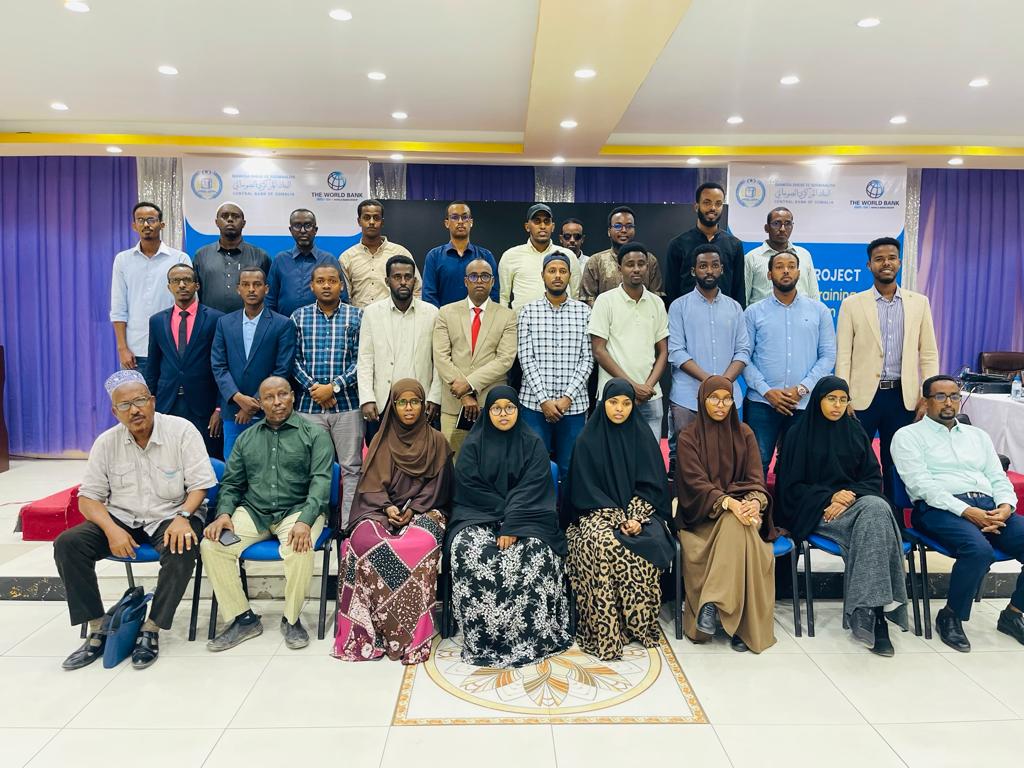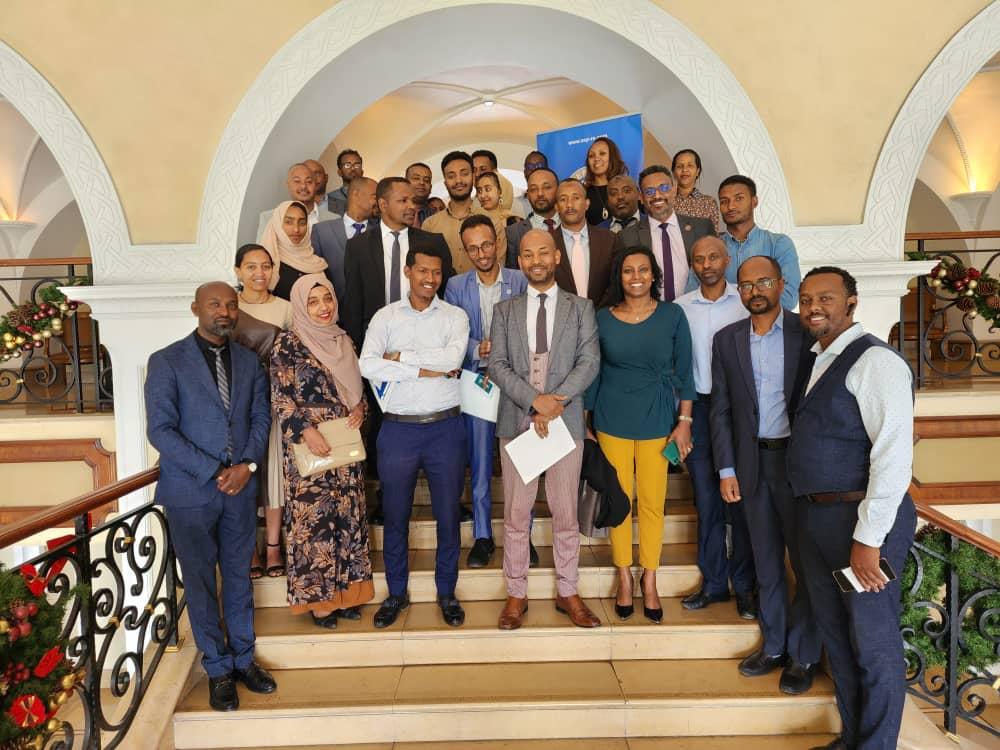[Event Recap] Ethiopia and Somalia learn more about takaful insurance in the Takaful Capacity Building Program

Takaful training participants in Somalia
The DRIVE Takaful Capacity Building Program for Horn of Africa (HoA) countries participating in component 1 of the project, Ethiopia and Somalia, took place from Monday 18th December to Thursday 21st December 2023. The World Bank’s Disaster Risk Financing and Insurance Program currently works on the DRIVE project with ZEP-RE, the COMESA regional reinsurer, is the implementer for the financial resilience component of DRIVE, which delivers drought insurance for pastoralists in HoA. The WB DRIVE team has organized and designed the training in response to requests from the national insurance regulators, in particular the Central Bank of Somalia (CBS). The training was delivered by the International Shari’ah Research Academy for Islamic Finance (ISRA) consulting, a subsidiary of the International Center for Education in Islamic Finance (INCEIF) University, that offers training in Islamic finance, economics, and Shariah, among other things.
Takaful is a mutual insurance system that operates in accordance with Islamic principles, which are based on mutual protection (risk sharing), and shared responsibility and cooperation (donation). The small takaful market in the HoA is rapidly growing, particularly in Somalia which is home to six takaful operators that grew total contributions by over 40 percent from US$6.5 million in 2019 to US$9.2 million in 2022. In Somalia, 99 percent of the population is Muslim, and in Ethiopia more than 30 percent is Muslim. With this vast Muslim population, DRIVE takes a people-centric approach by ensuring that the index-based livestock insurance delivered under DRIVE is sharia compliant. This addresses a critical need and allows for a wider reach of beneficiaries. By training regulators and practitioners of takaful the DRIVE project is strengthening capacity and supporting the overall development of the takaful market.
The four-day training event followed a hybrid model where the trainers, based in Malaysia, gave their presentations to over 75 participants spread across Ethiopia, Somalia and Somaliland. Notably, the training was attended by the Association of Ethiopian Insurers, Central Bank of Somalia, Somaliland National Insurance Authority, among other regional insurance companies and ZEP-RE, the COMESA regional reinsurer, who is the implementer for the financial resilience component of DRIVE. This included officials from the insurance regulator, insurance companies, takaful operators, and sharia scholars and leaders. Participants were invited to attend the event in-person where a large screen projected the training and the participants sat together. This allowed them to engage with the training more closely and interact and network with peers and regional colleagues.

Takaful training participants in Ethiopia
The training began with an introduction to takaful concept, the Shari’ah basis for takaful, and an overview of the global takaful market so that all participants would have a strong basic knowledge of the topic to grow with the rest of the week. The takaful regulatory framework was then covered including information on laws, licenses and requirements. On the second day, Shari’ah governance and takaful models were presented, with clear examples and engaging conversations. On the third day, takaful products and operations were presented. This functional topic covered vital topics such as how to choose the appropriate takaful models considering the technical and context-based factors. On the last day, takaful product pricing was requested as a particularly interesting topic by the participants. Although highly technical, this can make or break an insurance provider. Lastly, a challenging case of takaful life insurance in Malaysia pushed the participants to put their knowledge from the training week into practice. The week was engaging with many questions being asked by participants, and quizzes leading to captivating conversations between teachers and students.
Overall, the participants gave very positive feedback for the training, both in the content and logistics. 95 percent of the respondents found that the overall value of the training was positive. Survey results revealed that the level of knowledge on takaful concepts went up over 16 percent during the training. Participants expressed demand for more time, more experience sharing and more in-depth trainings on more technical topics including bancatakaful, retakaful, underwriting and Islamic investment instruments like sukuks.
Following this successful training, and as the demand for takaful training grows, future training will be rolled out. We hope to duplicate this event in Kenya in the upcoming months as well as undertake a study tour for Somalia stakeholders to visit Malaysia and learn about takaful first-hand.
Read the Horn of Africa: DRIVE Takaful - FAQ here.
The DRIVE project is supported by the Global Shield Financing Facility.
If you would like to learn more about DRIVE please visit:
- The Horn of Africa DRIVE project (https://www.worldbank.org/en/news/video/2023/05/31/horn-of-africa-afe-drive-project)
- The DRIVE Project by ZEP-RE (https://zep-re.com/drive-project/about-drive/)
- DRIVE Takaful FAQ (https://www.financialprotectionforum.org/publication/horn-of-africa-drive-takaful-faq)